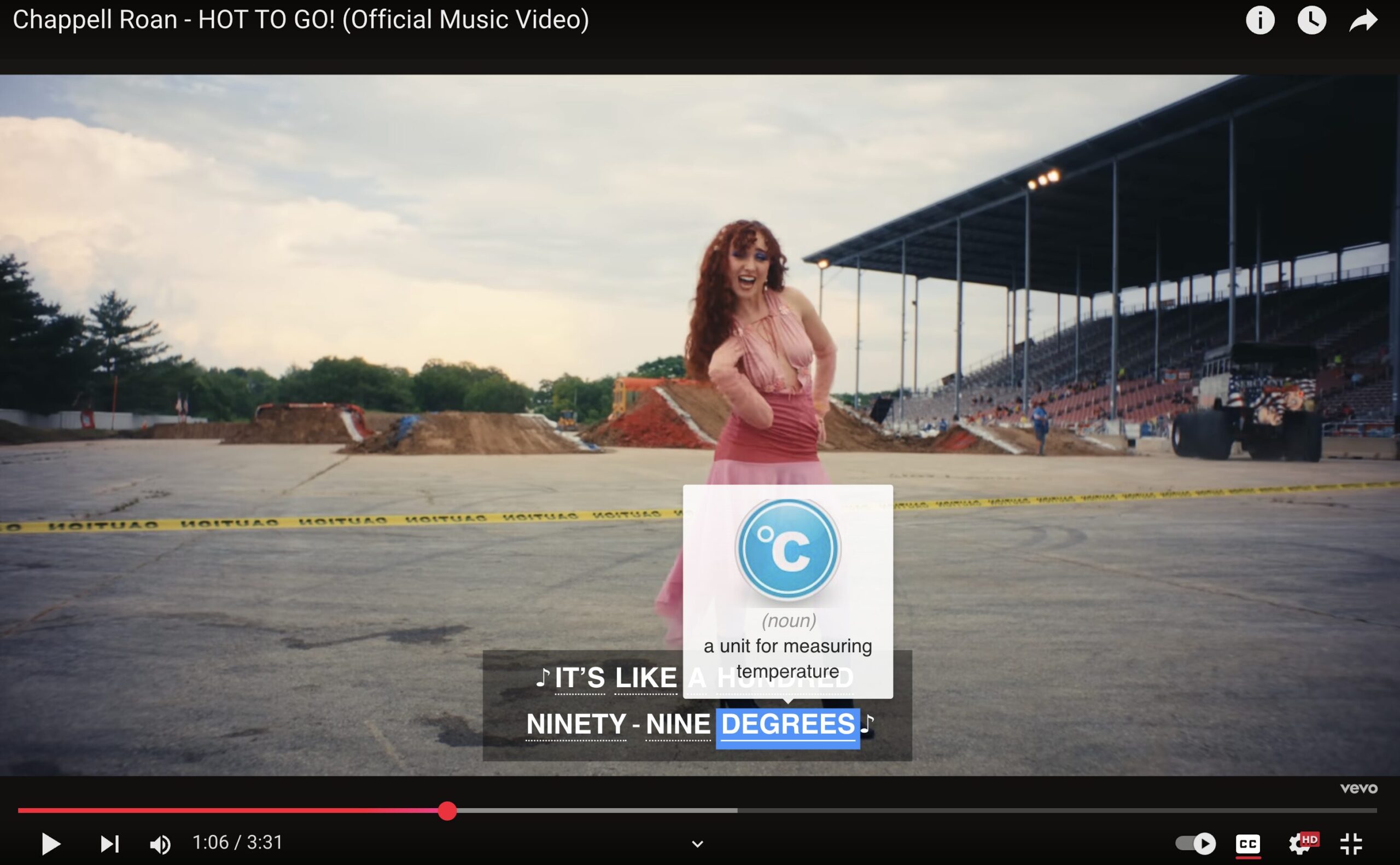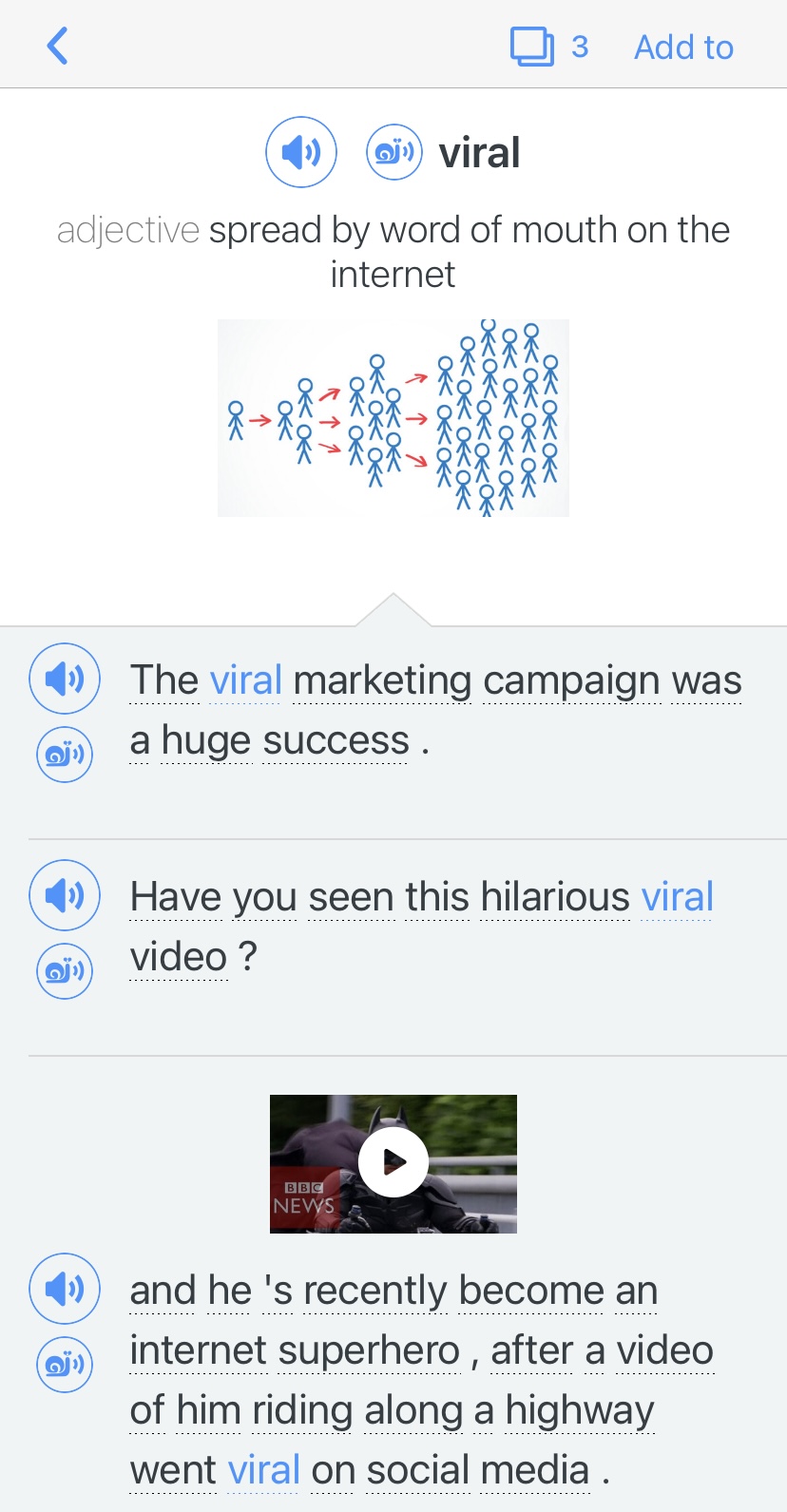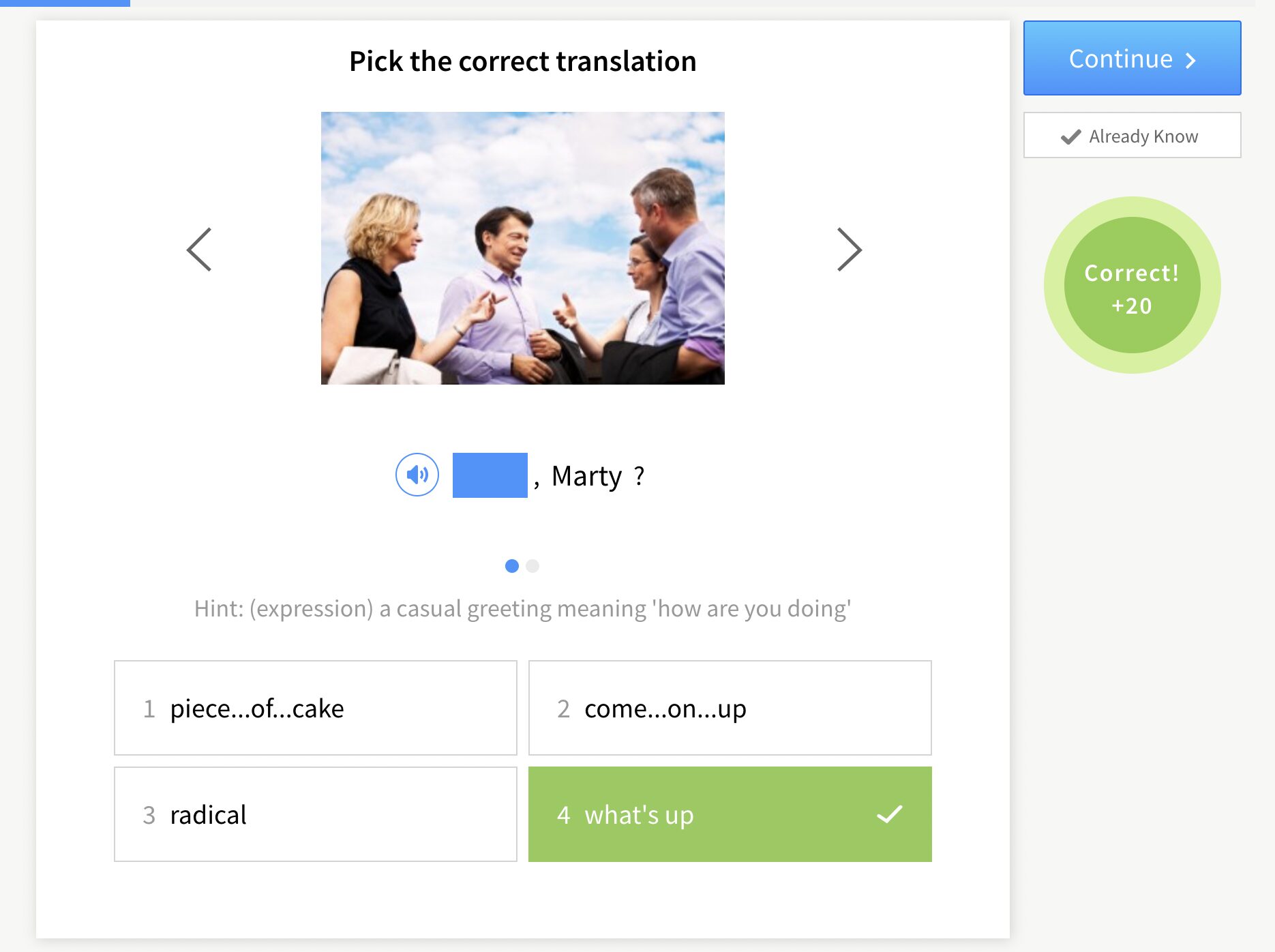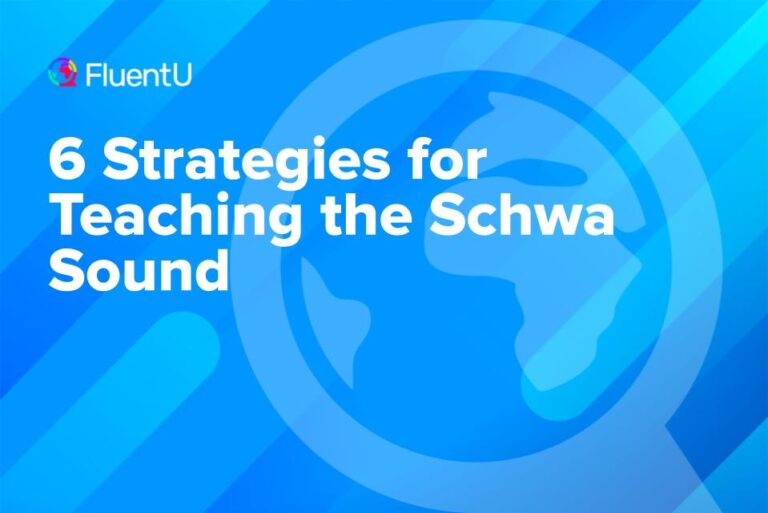Contents
- 1. Time to Eat!
- 2. Taxi!
- 3. Is There a Doctor in the House?
- 4. Time to Teach
- 5. Let’s Go Shopping!
- 6. Ace the Interview
- 7. Bizarre Job Interviews
- 8. Watch the Weather
- 9. Meet Your Mate on a Date
- 10. Town Hall Debate Showdown
- 11. Let’s Mail a Letter!
- 12. Let’s Get Down to Business
- 13. A Night Out on the Town
- 14. Driving Directions Improvisation
- 15. International Space Station
- 16. Lost in the Catacombs of Paris
- 17. Eating Out at the Freaky Fast Food Joint
- 18. The Interrogation Room
- 19. Surveyed on the Street
- 20. Blind Date
- How to Prepare ESL Role Play Activities
- And One More Thing…
20 Creative ESL Role Play Ideas

From young students to professionals, role play a great way to prepare your ESL students to use English in real world scenarios. Implementing this activity in the classroom can help students overcome their fear of public speaking or speaking English in general, use vocabulary in context and clarify any misunderstandings in a safe environment.
If you don’t know where to start, here are some of the most useful and relevant ESL role play ideas for your students.
Download: This blog post is available as a convenient and portable PDF that you can take anywhere. Click here to get a copy. (Download)
1. Time to Eat!
Goal: Students will master typical vocabulary and phrases used in a restaurant by understanding and responding appropriately to prompts.
Language used:
- Food-related vocabulary
- Restaurant vocabulary and phrases (Check, please!)
- Understanding and answering to a waiter (May I take your order?)
Description: In this role play, students test their knowledge of food vocabulary and common questions/phrases used at restaurants. For beginners, stick with simple questions like “How can I help you?” and “What would you like to drink?” Vocabulary should also be simple, such as “soup” and “ice cream.” For more advanced classes, you can introduce higher-level vocabulary and vary the questions.
In order for students to be successful, it’s important to pre-teach some of the more common phrases students might encounter.
For the actual role play, divide the class into small groups. Students should take turns being the server or guest. Circulate to make sure students are using the phrases correctly and instruct the students when to switch roles.
You can add an extra element of practice and creativity by letting students design menus before performing the activity.
2. Taxi!
Goal: Students will utilize their knowledge of direction words and polite requests to accurately give oral directions.
Language used:
- Direction words (go left/right/straight)
- Giving directions (Take the next right/left)
- Names of locations and local businesses (bank, restaurant, hotel, etc.)
Description: With this ESL role play topic, students have the opportunity to practice giving and clarifying directions. Be sure to pre-teach vocabulary and phrases like stating an address in the proper order: first the number, then the street name. You may also take time to introduce directions such as “left,” “right” and “straight.”
Once students are comfortable with the language, divide students into small groups. Assign the roles of driver and passengers. Students should use the pre-taught phrases to engage in a short dialogue about directions.
It’s best to give the class a time limit. Once time is up, the students should switch roles so that each student has the chance to be both driver and passenger.
3. Is There a Doctor in the House?
Goal: Students utilize appropriate medical phrases and vocabulary used at a doctor’s office or hospital.
Language used:
- Body part vocabulary
- Physical ailments
- Common medical terms
- Words and phrases for talking to doctors and nurses
Description: Depending on the age of the students, you can design the vocabulary accordingly. For younger students, stick with words like “runny nose” and “cough.” For older students, you might want to include such things as “high blood pressure.”It may also be a good idea to ask the students what medical words they want to know—some of them may have specific words related to their health they want to practice and you can help them find the right translations.
Divide students into small groups. Assign students the different roles and set a time limit for them to perform the dialogue. Make sure you give each student a chance to be the doctor, nurse and patient. If you have time, ask groups to volunteer to present their skit in front of the whole class.
4. Time to Teach
Goal: Students practice public speaking by instructing or explaining a chosen topic in detail to the class.
Language used:
- Vocabulary needed for topic of choice
- Common phrases used by teachers (Can everyone hear/see me?, Today we are going to learn how to ____.)
- Giving directions and instructions (first…, then…, finally…)
Description: “Time to Teach” gives you and the students a lot of flexibility. Students prepare a short lesson on a topic of their choosing and get to be the teacher for a few minutes. You can narrow the parameters by giving specific time limits or giving them a set list of topics. Not only does this give the teacher a bit of a break, it also results in lots of interesting new information for everyone involved.
This ESL role play topic allows students to practice instruction and transition words. For example, if a student decides to teach his classmates how to do origami, he might start with “First, fold your piece of paper in half,” followed by “then…” and “finally…”
5. Let’s Go Shopping!
Goal: Students have the opportunity to utilize common vocabulary and phrases that arise when shopping.
Language used:
- Terminology related to grocery stores (aisle, shelf, row, products)
- Phrases for talking with grocery store employees (excuse me, can you tell me where the ___ is?)
- Phrases used by grocery store workers (How can I help you?, Did you find everything today?)
Description: This role play topic allows students to utilize their food vocabulary, ask questions and engage in a money-based transaction.
Divide the class into small groups or turn the whole classroom into a supermarket. If you can, set up the desks as aisles and let students bring items from home to use as products in the store. Create a checkout line and use a desk as a cash register.
Employees should circulate and ask customers if they need help. You might encourage the customers to be lost and needy, constantly seeking assistance. The cashier then rings up the items and finalizes the transactions. Assign them different roles and make sure each student has a chance to act as employee, cashier and customer. You might even have fake money so students can practice counting and using money-related vocabulary.
6. Ace the Interview
Goal: Students practice professional English, proper interview etiquette and responding appropriately to common interview questions.
Language used:
- Common questions and answers used in interviews (What are your strengths? Why do you want this job?)
- Talking about yourself
- Discussing your past, present and future (I graduated from…, In five years, I see myself…)
Description: This particular ESL role play topic may not be suitable for young students. However, it can be extremely beneficial and worthwhile for business English students, as well as high school and university students. And who does not like talking about themselves?
Divide students into pairs and have them take turns being the interviewer and interviewee. The questions can be as detailed as you would like and can be adjusted for different student levels. Be sure to also use this opportunity to teach students about the importance of body language and interview etiquette.
7. Bizarre Job Interviews
Goal: Students think outside the box in an interview setting and prepare to respond spontaneously to less common interview questions.
Language used:
- Asking common interview questions with a twist
- Answering questions spontaneously
Description:
The jobs your students interview for will be those of a more bizarre nature. This will evoke more English thought, and force your students to go off script from the usual interview questions and answers.
Ask your students as a class about a few jobs they may have had, or possibly some bizarre jobs they may have heard about. This promotes imagination, creativity and will serve as a great warm-up activity. You can even share a bizarre job of your own or of a friend. Maybe you or someone you know spent a summer as a kiwi picker in New Zealand, or cleaned cages at the zoo.
You will need to have made a few worksheets for each job interviewer ahead of time. A fun twist is to let the interviewer know which job the interviewee will be interviewing for, but to keep the interviewee in the dark until the activity begins.
For example, let’s say Student A has a list of questions to ask Student B, the interviewee. Student A might read, “How did you hear about the position for tiger tooth cleaner?” Student B will need to spontaneously come up with an answer.
Student B should also have an opportunity to ask the interviewer any questions he or she may have about the job. For example, “How many tigers are there?” This will evoke a quick, spontaneous response from Student A. Your students should switch roles among the different interview tables and bizarre jobs.
8. Watch the Weather
Goal: Students practice weather-related terms and phrases, as well as different verb tenses.
Language used:
- Weather terms (sunny, cloudy, rain, snow, wind)
- Temporal words (today, yesterday, last night)
Description: Talking about the weather is a necessity for accurately describing the current conditions, as well as mastering the art of small talk. This ESL role play topic is great for helping students master these terms and using a variety of verb tenses in context.
Students work in small groups to give a weather report, explaining the past, future or present conditions. Depending on the level of your class, you may also let them talk about traffic or current events. For added interest, you might include a “citizen” in the role play for the anchor or reporter to engage with.
9. Meet Your Mate on a Date
Goal: Students formulate and appropriately respond to personal questions.
Language used:
- Personal questions
- Describing yourself (My name is…, My hobbies are…)
- Introduction words and phrases (Nice to meet you)
Description: Students can ask any number of questions on their “date.” They can be themselves or you can assign them different professions. Set up the desks or tables so that students can sit across from one another. The dates should be short and students should rotate several times so they have a chance to speak with several classmates.
They should start with simple introductions, but following that, the questions they ask will be determined by the level and whatever it is that they have studied recently. For example, if the class has been studying words for family members, the questions may relate to family. If you have been talking about hobbies, the “date” could start with the question “What do you like doing?”
10. Town Hall Debate Showdown
Goal: Students engage in debate and persuasive speeches to convince their audience of their assigned viewpoint.
Language used:
- Vocabulary related to the topic at hand
- Persuasive words and phrases (I agree/disagree because…)
- Expressing your thoughts and beliefs (I believe…, I think…)
- Ordered speech (First of all…)
Description: Debating can be a fun and exciting way to practice speaking persuasively and learning how to effectively agree or disagree with someone. This activity can be done in a one-on-one setting or in teams of two or three students against another team.
While the other ESL role play topics can be adapted for any age group or English level, this role play topic is best saved for more advanced speakers.
You should prepare several topics that the students can debate. Make sure the topics have two clear sides to argue. You might pick something current or political for older students. For younger students, something like the school start time or wearing uniforms would be more appropriate.
In any case, you’ll need to give students a chance to prepare their arguments, including opening statements and well-formulated supporting facts and examples.
11. Let’s Mail a Letter!
Goal: Students use words and phrases to successfully make inquiries and/or mail a card or package.
Language used:
- Post office vocabulary (I’d like to buy stamps, please. What’s the fastest way to send it?)
- Common clerk questions (How can I help you? How would you like to send this?)
Description: A post office might not be the most exciting place in the world, but it’s a pretty important place if you want to get that package to your mom for Christmas!
Give students the opportunity to practice buying stamps, clarifying an address or sending a package in this role play. This is best done in groups of two. You should monitor the students, making sure they are using appropriate phrases and checking pronunciation.
12. Let’s Get Down to Business
Goal: Students practice going over an agenda, running a meeting or giving a business presentation.
Language used:
- Business-related terms (agenda, email, meeting, etc.)
- Sequence words and phrases (It’s time to get started. Who would like to go first?)
- Asking questions in a professional setting (I have a question concerning ___. What is our timeline for ___?)
Description: This role play is directed towards older students and gives them the chance to practice their business English. Encourage the “boss” to open the meeting with a greeting and a purpose for the meeting. The “employees” should be encouraged to ask questions and offer thoughts and opinions related to the topic of the “meeting.”
In general, this role play works best with small groups of students. Ask the students to take turns playing the different roles for optimal practice.
What’s great about this role play is that you can adapt it to any type of situation; you could assign groups of students to different types of business meetings. For example, one meeting might be an advertising meeting while another might be a downsizing meeting.
13. A Night Out on the Town
Goal: Students will learn how to strike up casual conversations in a very informal setting, from a variety of points of view.
Language used:
- Explaining one’s self
- Conversational, casual language
- Asking and answering improvised questions
Description: This role play activity gives students a chance to practice sparking up a conversation in an informal way with new people in English. Before you dim the lights and turn up the music, talk about your past experiences socializing in casual settings like bars and concerts. Some of your students may have already had a night out in an English-speaking country, and their anecdotes may be helpful for their classmates moving forward. You could even share a story of your own.
Assign students roles, like bartenders, servers and patrons, even the DJ. You and the class can take it a step further and give each character a brief backstory, like the businessman who’s visiting for just one night, or the artist who’s working at the bar to make ends meet.
You’ll also be a patron during this activity, floating and sparking up a conversation with your students’ characters. Roles will be switched and everyone in the class will get an opportunity to be someone new. You could even add a theme to your role play activity, such as New Year’s Eve, St. Patrick’s Day or another English-speaking holiday or a big event like the World Series or the Superbowl.
14. Driving Directions Improvisation
Goal: Students will learn how to make and follow driving directions.
Key words/phrases:
- Direction words (follow this road, turn right)
- Names for vehicles and people (driver, passenger, pedestrian)
Description: In this role play activity, you’ll employ a few antagonists to throw a wrench in the otherwise traditional ESL lesson for directions.
Divide your students into groups of four and assign a role to each: driver, front-seat passenger, pedestrian and backseat antagonist. Hand the pedestrian a slip of paper with pre-written directions.
The front-seat passenger asks the pedestrian for directions. Once received, the backseat passenger will try to mix up the driving directions by disagreeing and providing the wrong instructions.
The driver will try to keep things straight in this confusion. After a few minutes go by, the driver must show you how they would navigate to the destination in the correct way. Focusing on the correct directions gives the driver a chance to really practice their listening skills!
15. International Space Station
Goal: Students practice identifying, discussing and resolving problems and conflicts using various methods and language skills.
Key words/phrases:
- Critical language (Who brings a bag of seeds into space anyway?)
- Descriptive language (It’s long and green, it’s got three eyes, it looks like…)
- Instructional language (Try turning it to the left, you need to open the lid like this…)
- Questions (Did you look under the control panel? When was the last time you saw it?)
Description: In this activity, students pretend to be visiting or working on the International Space Station. Assign roles to students, like astronauts and wealthy space tourists, but also more outside-the-box options like a school teacher invited to give science lessons from space or a common man who has won the visit in a lottery.
Each type of person would think and speak differently! Encourage students to have fun with it. Being enclosed in a vehicle that travels at thousands of miles an hour at zero gravity can lead to some pretty odd situations. Here are a few ideas to get students talking:
- Someone brought sunflower seeds to munch on and they’re floating everywhere.
- A piece of disgusting space garbage is floating outside the window.
- Someone sees an extraterrestrial outside the window.
- Cabin pressure drops and everyone has to find ways to fix the problem.
Set some ground rules by ensuring that students go through each scenario by identifying the problem or issue, discussing the issue and resolving it. It’s a fun way to practice conflict resolution in English.
You can get fun with this by adding props. For instance, an old TV remote can act as a communication device, your ESL textbook can double as a handbook for fixing something on the station, etc.
16. Lost in the Catacombs of Paris
Goal: Students will use their English skills to find their way around an unfamiliar and potentially scary situation.
Language used:
- Directional language (Turn left here! We should retrace our steps…)
- Hypothetical language (It could be rats. That might be sewer water. We might find a way out…)
- Emotional language (I’m really scared! Don’t worry, we’ll be fine. Be brave!)
Description: Your students have strayed from the guided tour of the Catacombs of Paris into uncharted tunnels, full of humidity, bones, rats and spiderwebs. Turn out the lights, hand out flashlights, and have your students talk among themselves as they navigate the catacombs.
Students can come up with roles themselves since there’s a lot of freedom for those who might visit the catacombs. You can provide them with some ideas, like tourists, tour guides, ghost hunters, sanitation workers and even a runaway criminal and the police in search of them.
You could make this a full-class activity by preparing a map and guiding your students through encounters and situations. For instance, your students could make a wrong turn and hear some strange noises (then decide whether to investigate or get out of there quickly!). After a certain amount of time, the water can begin to rise to add to the urgency.
17. Eating Out at the Freaky Fast Food Joint
Goal: Students will learn how to discuss unfamiliar food and cuisine, and learn how to talk about potentially unappealing.
Key words/phrases:
- Descriptive language (Describing foods that are disgusting in an attractive manner)
- Persuasive language (Convincing clients to try something that might seem unappealing at first)
- Expression of surprise/disgust language (Oh my gosh, that’s really nasty! What on earth is that supposed to be? You don’t expect me to eat that, do you?)
- restaurant language (ordering, paying, complaining)
Description: This role play activity places students in a fast food restaurant that happens to serve truly unusual and disgusting food. Students can assume pretty normal roles, like a couple of friends on vacation, a local who’s trying to get some tourists to try their cuisine or owners of a neighborhood restaurant who are checking out the competition.
Create the menu before the activity begins by asking your class to come up with some bizarre food types or combinations, like raspberry jam on cheesy fries. Yum! This might even lead to a discussion of foods from different cultures that might be considered disgusting or unusual by someone who hasn’t tried it, like chicken feet, cow tongue or solidified chicken broth (all of which, by the way, are absolutely delicious!).
During the role play, students can work in groups to peruse the menu, discuss the meals between themselves and talking to the waiter. Encourage students to use many adjectives to describe the look, feel, smell and taste of their pretend bizarre meals.
18. The Interrogation Room
Goal: Students will spontaneously respond to questions in the past tense under potentially stressful situations.
Key words/phrases:
- Leading questions (Why did you do it? Where were you at the time of the crime?)
- Answering questions / avoiding answering
- Denial language (I didn’t do it! I wasn’t there! I don’t know what you’re talking about!)
- Past tense (I was in another place. I was doing something else at the time.)
Description: This role play is intended for an older audience, and will be especially enjoyed by students who are fans of thrillers or procedural crime shows. Begin by showing your students short videos of interrogations from crime films. Discuss with the class the different roles of the cops and suspects, paying close attention to body language, in particular.
Assign students roles like a detective, good cop, bad cop, witness, innocent suspect and guilty suspect. You can do this as a whole class and call up different witnesses and suspects to the front to be interrogated by the cops and detective(s). Students should all receive brief descriptions of their roles and some facts they need to know (but others might not). For instance, one suspect might be innocent of the crime but guilty of another, which may lead to then lying during the interrogation.
You can make the crime as gruesome or as innocent as you want, depending on your students. For example, you can have an elderly, wealthy man be murdered and his suspects are the family who are set to inherit his riches. You might have a person who’s been stopped by border police for trying to enter the country with a very unusual story. You could even be looking for the thief in a bank heist!
19. Surveyed on the Street
Goal: Students will learn how to answer information questions and how to politely end a conversation quickly.
Key words/phrases:
- Questions / Answers (More information questions than simple yes/no questions)
- Avoidance language (I’m sorry, I’m in a hurry. I don’t have time right now. I’ve got to pick up my daughter at her dance class.)
- Cold presentation (Cold greeting, quick presentation, participant capture)
Description: Imagine the situation: You’re walking down the street, and someone comes at you with a clipboard and a smile and asks you if you have a few minutes to take a “quick” survey. Students will be paired off, with one person very determined to give the survey, and the other trying to get on with their day.
Have a variety of survey ideas on hand, and encourage the person giving the survey to come up with suitable questions. Some survey topic ideas include political surveys, a basic survey of the neighborhood’s demographics a survey meant to canvass for a particular product (e.g. “Try our new chocolate bar and give your opinion”) and any other interesting topics you and your students might come up with.
Meanwhile, the survey takers can be given personality cards, to encourage them to respond in different ways. They might be in a hurry (give very short answers), they might hate surveys (refuse to answer or give incorrect answers) or they might be the opposite and be extremely talkative (give the survey taker winding answers that keep getting distracted from the main point). Have fun with it!
20. Blind Date
Goal: Students will use their English conversational skills to get to know someone new.
Key words/phrases:
- Polite greetings
- “Getting to know you” questions/answers (Where are you from? What do you like to do in your free time? What do your think of current event / famous person ? Who’s your favorite singer?)
- Making excuses (Well, it’s been nice, but…; I’ve really had a good time, but I’ve got to go now; It’s getting late, I should be on my way…)
Description: Participants in this ESL role play activity are having blind date in a nice restaurant—a date which was arranged by a computer matchmaking service that purports to hook up perfect couples for eternal love and relationships. What your students won’t know (but will begin to suspect!) is that the computer program couples people with opposing personalities.
Here are some examples:
- A loud, obnoxious person with a timid person
- An elderly person with a teenager
- Two strong-willed people who never agree with anyone else
The situations in this role play will emerge from the conflict of two opposing personalities assuming they’ve been perfectly matched and finding out that that’s not the case. As they “get to know each other,” they should gradually discover that the computer has made a huge mistake.
While you can use your standard personality cards, you may want to prepare additional cards that add a conflict:
- You are very bossy
- You are always right and everyone else is always wrong
- You are really loud and obnoxious
- You are a calm, timid person
- You are 102 / 21 years old
How to Prepare ESL Role Play Activities
Remember the best idea or activity can go south very quickly if it’s not adapted to meet the needs of your students. So, be sure to pre-teach any necessary vocabulary and allow them to practice their dialogues, if needed. You can always add more elements of fun by allowing students to dress up and allowing lots of improv!
A great way to get started is by modeling some language and action with video content. By representing interactions and native forms of English you’ll perfectly showcase a role play situation.
For this, you can use a program like FluentU. You can use FluentU in the classroom and watch a video together to get into character. Or, you can send students home with homework to do on their own time.
FluentU takes authentic videos—like music videos, movie trailers, news and inspiring talks—and turns them into personalized language learning lessons.
You can try FluentU for free for 2 weeks. Check out the website or download the iOS app or Android app.
P.S. Click here to take advantage of our current sale! (Expires at the end of this month.)

These ESL role play topics can be adapted in so many different ways. Get creative and be flexible!
Happy acting!
Download: This blog post is available as a convenient and portable PDF that you can take anywhere. Click here to get a copy. (Download)
And One More Thing…
If you’re like me and prefer learning English on your own time, from the comfort of your smart device, I’ve got something you’ll love.
With FluentU’s Chrome Extension, you can turn any YouTube or Netflix video with subtitles into an interactive language lesson. That means you can learn from real-world content, just as native English speakers actually speak.
You can even import your favorite YouTube videos into your FluentU account. If you’re not sure where to start, check out our curated library of videos that are handpicked for beginners and intermediate learners, as you can see here:
FluentU brings native English videos within reach. With interactive captions, you can hover over any word to see an image, definition, and pronunciation.
Just click on the word to see other example sentences and videos where the word is used in different contexts. Plus, you can add it to your flashcards! For example, if I tap on the word "viral," this is what pops up:
Want to make sure you really remember what you've learned? We’ve got you covered. Practice and reinforce the vocab from each video with learn mode. Swipe to see more examples of the word you’re learning, and play mini-games with our dynamic flashcards.
The best part? FluentU tracks everything you’re learning and uses that to create a personalized experience just for you. You’ll get extra practice with tricky words and even be reminded when it’s time to review—so nothing slips through the cracks.
Start using the FluentU website on your computer or tablet or, better yet, download our from the App Store or Google Play.
Click here to take advantage of our current sale! (Expires at the end of this month.)












